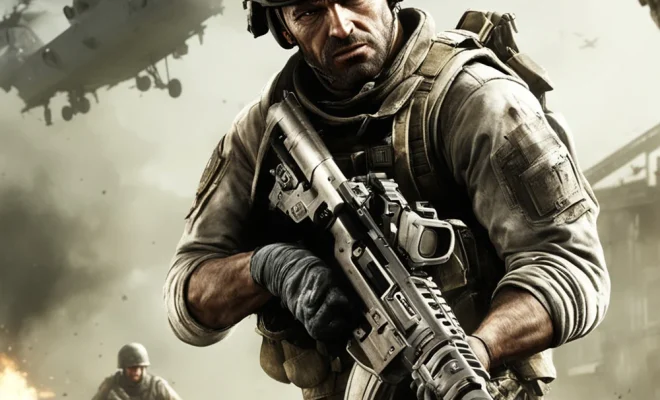The Cultural Impact of Call of Duty – Beyond Gaming

Call of Duty’s influence extends far beyond the realm of video games, permeating popular culture and shaping societal perceptions of warfare, military service, and geopolitics. The franchise’s massive popularity has made it a cultural touchstone, influencing everything from movies and television to music and fashion.
One of the most significant cultural impacts of Call of Duty has been its portrayal of modern warfare. While the series has faced criticism for potentially glorifying violence, it has also sparked important discussions about the realities of war in the 21st century. The games’ depictions of conflicts in the Middle East, Eastern Europe, and other global hotspots have, for many players, served as a primary source of engagement with these complex geopolitical issues.
The franchise’s influence on military recruitment is a topic of ongoing debate. Some argue that the games present an unrealistic, glamorized view of military service that could influence young people’s decision to enlist. Others, including military personnel, have noted that the games can provide a general understanding of military tactics and teamwork, albeit in a highly stylized form. The U.S. Army even developed its own game, “America’s Army,” partly in response to the success of military-themed games like Call of Duty.
In the realm of entertainment, Call of Duty’s cinematic approach to storytelling has blurred the lines between games and movies. The franchise has attracted Hollywood talent both in front of and behind the camera, with actors like Kevin Spacey and writers from the film industry contributing to game development. This cross-pollination has influenced how stories are told in both mediums, with movies and TV shows adopting more game-like narratives and pacing.
The series has also had a significant impact on internet culture and social media. Memorable quotes, characters, and moments from the games have become memes and references widely recognized even by non-players. Streaming platforms like Twitch and YouTube have seen countless hours of Call of Duty content, from casual gameplay to professional tournaments, contributing to the rise of gaming as a spectator activity.
Call of Duty’s annual release cycle has become a cultural event in itself, with midnight launches and marketing campaigns that rival major film releases. The anticipation and discussion surrounding each new title have become part of the gaming calendar, influencing release schedules and marketing strategies across the industry.
The franchise’s depiction of historical events, particularly in its World War II-themed titles, has served as an introduction to these periods for many young players. While not a substitute for formal education, the games have sparked interest in military history and encouraged players to learn more about the real events that inspired the games.
Call of Duty’s multiplayer component has fostered a unique subculture with its own language, customs, and social norms. Terms like “camping,” “quickscoping,” and “noob tube” have entered the gaming lexicon, often spreading beyond Call of Duty to the broader gaming community. The competitive scene has created celebrities out of skilled players, with professional gamers and streamers becoming influential figures in their own right.
The franchise has also been at the center of discussions about video game violence and its potential effects on players. While scientific consensus has generally not supported claims of a direct link between video game violence and real-world aggression, Call of Duty’s popularity has made it a frequent topic in these debates, contributing to broader societal discussions about media consumption and its impacts.
In the business world, Call of Duty’s success has influenced marketing strategies and business models across the gaming industry and beyond. The series’ approach to post-launch content, microtransactions, and seasonal updates has been widely emulated, shaping how games are monetized and supported long after their initial release.
As virtual and augmented reality technologies advance, Call of Duty’s cultural footprint may expand even further. The potential for more immersive military simulations raises new questions about the intersection of entertainment, technology, and real-world conflict.
Call of Duty’s cultural impact is a testament to the growing influence of video games in shaping societal narratives and perceptions. As the franchise continues to evolve, it will likely remain a significant force in popular culture, reflecting and influencing our understanding of warfare, technology, and global politics in the digital age.






